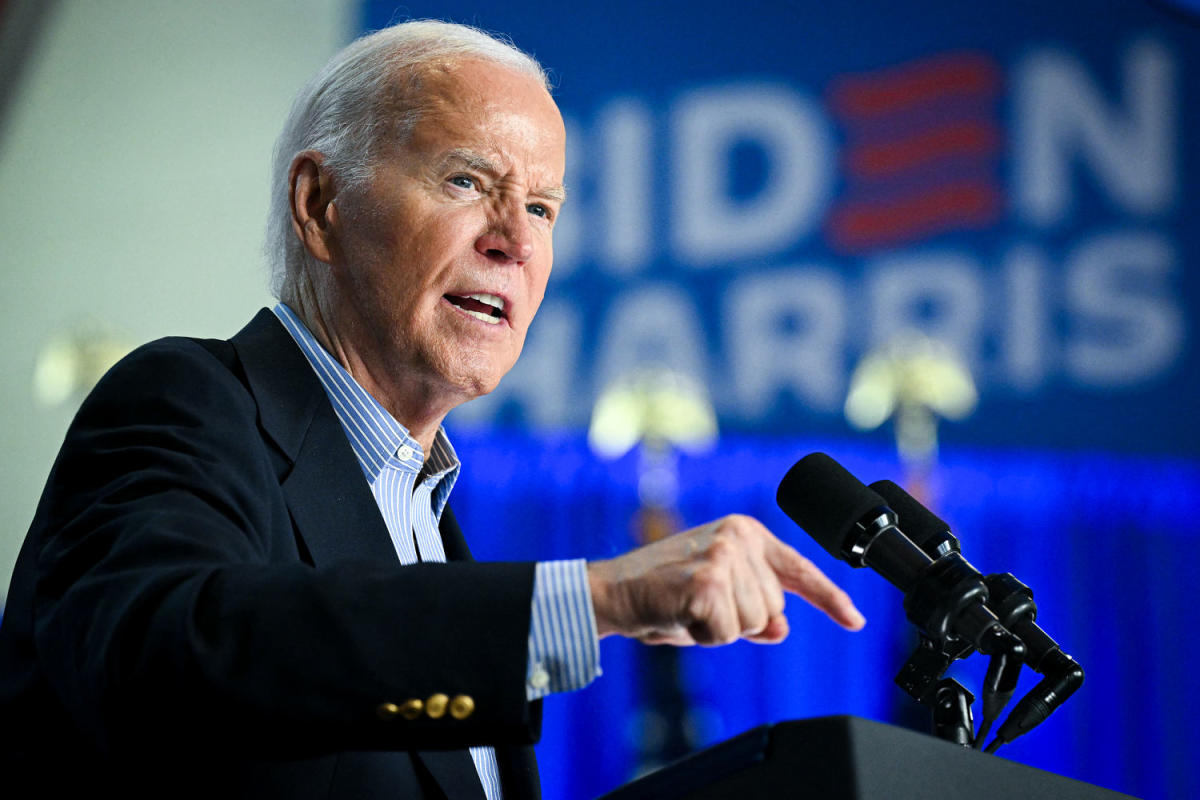London — British voters go to the polls on Thursday to vote in the first general election since 2019. Here’s what you need to know.
Who is running in the UK elections?
British voters will not directly elect a new leader on Thursday. Under the U.K.’s parliamentary system, voters elect their local representatives to the lower house of parliament, the House of Commons.
On Thursday, there are 650 parliamentary seats up for grabs, each held by one Member of Parliament (MP) in the House of Commons. To win an absolute majority in the House of Commons, a party must win at least 326 seats, more than half of the available seats. Any party that does so will form the next government, with its leader becoming prime minister. [Yes, King Charles III is Britain’s formal head of state. You can read here about what limited power that actually conveys.]
Parliament was formally dissolved on 30 May when current Prime Minister Rishi Sunak called an election, as is customary. But before that, Sunak’s long-standing Conservative Party had an absolute majority of 345 seats, giving it considerable power to set the policy agenda.
PHIL NOBLE / POOL / AFP / Getty
The UK has what’s called a first-past-the-post system, which means that voters receive a ballot paper with a list of candidates from different parties and select only one of their choice. The candidate from each constituency with the most votes wins the seat — with no specific threshold required. So, for example, if there are six candidates in a given race, they will all be from different parties, and even if the candidate with the most votes only wins 25% of the total, they still win the seat.
If a voter believes that his favorite candidate has little chance of winning, he may choose to vote tactically and put his X next to the name of another candidate — effectively a second choice — who he believes has a better chance of winning. This tactic is generally seen as a way for a voter to help prevent a candidate who is viewed as highly unfavorable, but who has a reasonable chance of winning, from winning the seat in a race.
In practice, this system means that a political party can win a healthy share of the vote nationally, but not a fair share of seats. Smaller political parties in the UK have long argued that the first-past-the-post electoral system has thus helped consolidate the power of Britain’s two largest parties: the incumbent right-wing Conservative Party, often referred to as the Tories, and their main rivals, the more left-wing Labour Party.
What is the UK election timeline?
Voting for the UK general election begins on Thursday morning, with most constituency results expected early on Friday morning. In some rural parts of the country, however, this may take longer, particularly if the vote count is close or there is a recount.
There is usually an early indication of the overall outcome of a UK general election, as British broadcasters Sky News, ITV and CBS News’ partner network BBC News publish a joint exit poll immediately after polls close.
The exit poll usually provides an accurate picture of the final results and can be expected on Thursday around 10 p.m. local time (5 p.m. Eastern Time).
UK Election Predictions and Polling Data
For weeks, polls and political analysts have been predicting that Labour will win an overwhelming majority in parliament. If the latest polling data is correct, Conservative Prime Minister Rishi Sunak’s 18-month tenure will come to an end and Britons will wake up on Friday morning to a new party leading the country for the first time in 14 years.
Those 14 years of conservative rule have been marked by politics And economic unrestwith a rotating line-up of five Conservative prime ministers occupying 10 Downing Street in the past eight years alone.
The latest poll from YouGov, the major independent data analysis group, shows Labour leading by a margin of 17 points. 37% of respondents said they planned to vote Labour, while 20% of the population said they would vote Conservative.
It is predicted that Labour candidates will win a whopping 425 seats in the House of Commons, which would mean a huge gain of 223 seats for the party. The Conservatives are expected to retain just 108 seats, which would mean a huge loss of 257 seats.
Who is Keir Starmer, the likely next Prime Minister?
Keir Starmer was elected by party members to lead Labour in 2020, shortly after the party suffered its worst general election defeat in 85 years. He immediately declared it his mission to make the party “electable” again.
Four years later, Starmer, 61, is set to take on Britain’s top job.
Matthew Horwood/Getty
He has often been criticised for a lack of charisma, but his efforts to put Labour back at the centre of British politics and thus appeal to a wider audience appear to be paying off.
Throughout his leadership of the party, Starmer has systematically sidelined elements of the far-left, socialist-oriented wing of Labour that led the party under previous leader Jeremy Corbyn.
Starmer’s deliberate shift from socialism to centrism has been criticised by pundits and voters more inclined to the left. Labour may be losing votes to smaller parties such as the Liberal Democrats and the Green Party, but the polls suggest it has been a successful strategy overall.
Is Britain bucking the trend of European rightward shift?
A shift to a centre-left Labour government in Britain would mark a break with the trend in Europe, where far-right parties have been on the rise across the continent in recent years.
In the first round of voting in France’s parliamentary elections on Sunday, Marine Le Pen’s far-right, anti-immigration National Rally Party came close to becoming the largest political party in France. The party received a third of the votes in a first round that attracted a historically high turnout.
If voters continue this trend in the decisive second round of voting on July 7, will mean an unprecedented shift to the right for the French.
Last months European Parliament elections also saw a record number of far-right lawmakers win seats, with right-wing candidates in Europe’s three largest economies – Italy, France and Germany – making gains by campaigning on opposition to issues such as immigrationsupport for Ukraine and green environmental policy.
While a Labour victory would be a step against the political tide on the continent, Britain has also seen a surge in support for far-right candidates this election cycle.
Nigel Farage may be known to Americans as a ally of former President Donald TrumpHis fierce anti-immigrant rhetoric became hugely influential in the movement that led to the British “Brexit” from the European Union.
After decades on the far-right fringe of British politics and failing to win a seat in Parliament despite eight previous attempts, Farage looks set to finally win a seat for his constituency of Clacton in south-east England this year.
Nigel Farage/Twitter
Farage’s far-right Reform Party is expected to win only around five seats in parliament, including Farage’s, but YouGov predicts that overall support for reform will be around 15% of voters nationwide. Given its current position of zero seats in the House of Commons, it looks set to gain significant popularity.
Political analysts say Reform’s anti-immigration message is undermining much of the Conservative Party’s vote share.
While Farage is unlikely to take power any time soon, he looks set to return to the spotlight of British politics. With a healthy dose of public support, he could wield an outsized influence on the politics of Britain’s Conservative Party, which is trying to rebuild itself after what could be a devastating election.
Frank Andrews of CBS News contributed to this report.










